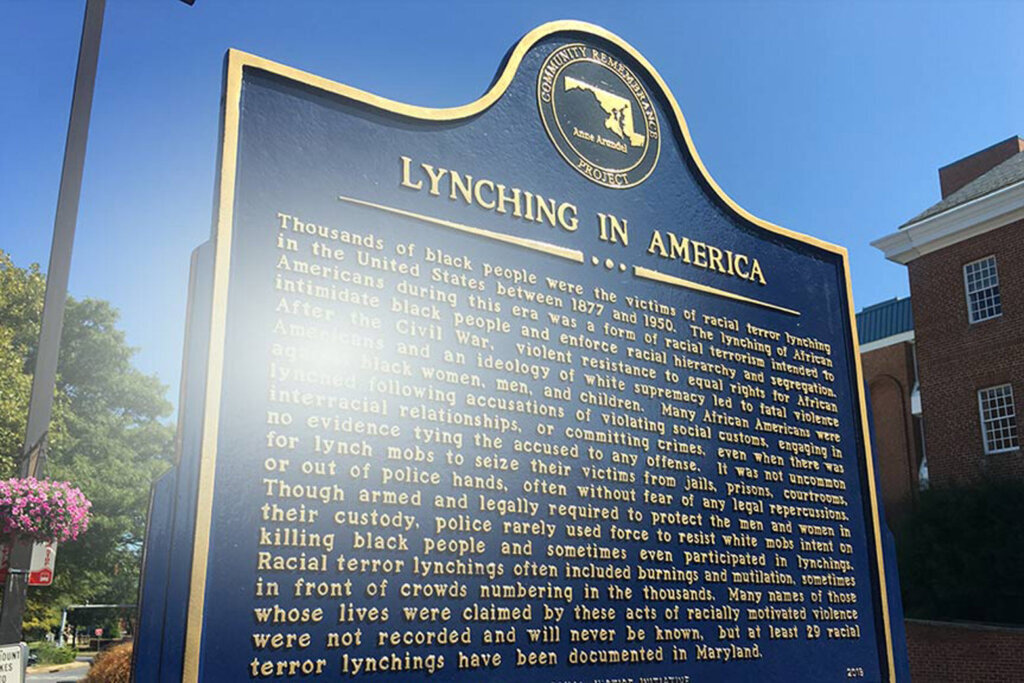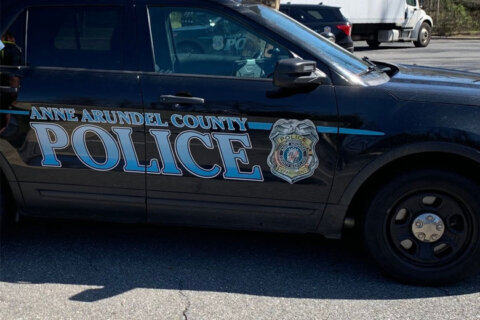On Saturday, the Maryland Lynching Truth and Reconciliation Commission heard from experts and historians about social conditions that allowed mobs to lynch five Black men across four decades.
The hearing focused on the fates of five men: Henry Davis, King Johnson, George Briscoe, John Simms and Wright Smith. All had been lynched in Anne Arundel County between 1875 and 1911.
Some present at Saturday’s meeting included descendants of the lynching victims, expert witnesses, community members, archivists, and community scholars.
According to experts and historians, local media, judges, police and prosecutors all played a part in the killings by downplaying and justifying the lynchings.
According to the commission, in 1898 the Maryland General Assembly had failed to pass proposed anti-lynching legislation.
The commission also presented documentation showing “county sheriffs and jailers allowed mobs to take men from jail with impunity, county state’s attorneys refused to identify and bring charges against members of lynch mobs and county coroners often claimed victims of lynching had died ‘at the hands of parties unknown.'”
The meeting showed also featured accounts of that period from local outlets, such as The Baltimore Sun. Commissioner Tony Spencer said the articles of the time show a complicity of the media in these lynchings.

Commission chair David Fakunle wore a noose to the meeting and said one of the most important goals for the commission was to elevate the names and testimony of the victims and their descendants.
“These stories have been told from all sides, and the descendants of those who have been involved in these horrific crimes are here,” Fakunle said.
“They exist, they are still with us in this mortal world, and we want to give space for the stories that we represent,” he added.
Linda Davis, with Anne Arundel County’s Connecting the Dots, highlighted the five men’s humanity before introducing the coalition of speakers who discussed their backgrounds.
“They were sons, brothers, cousins, grandsons, nephews, husbands, fathers and men,” she said. “They were human beings who were immediately seen as guilty instead of innocent until proven guilty. They did not receive due process — they were killed by white lynch mobs.”
In 2018, the Annapolis City Council passed a resolution that apologized for the historic lynchings of Black men in Annapolis and Anne Arundel County.
The Maryland Lynching Truth and Reconciliation Commission was formed in 2019 to undertake a yearslong mission to document the known — and so far unknown — incidents of lynchings in the state of Maryland. At least 41 Black men are believed to have been killed by lynch mobs in the state.
In addition to Anne Arundel, other counties in Maryland are working with the commission to examine their role in the practice of lynching.
WTOP’s Danielle E. Gaines and Joshua Barlow contributed to this story.






